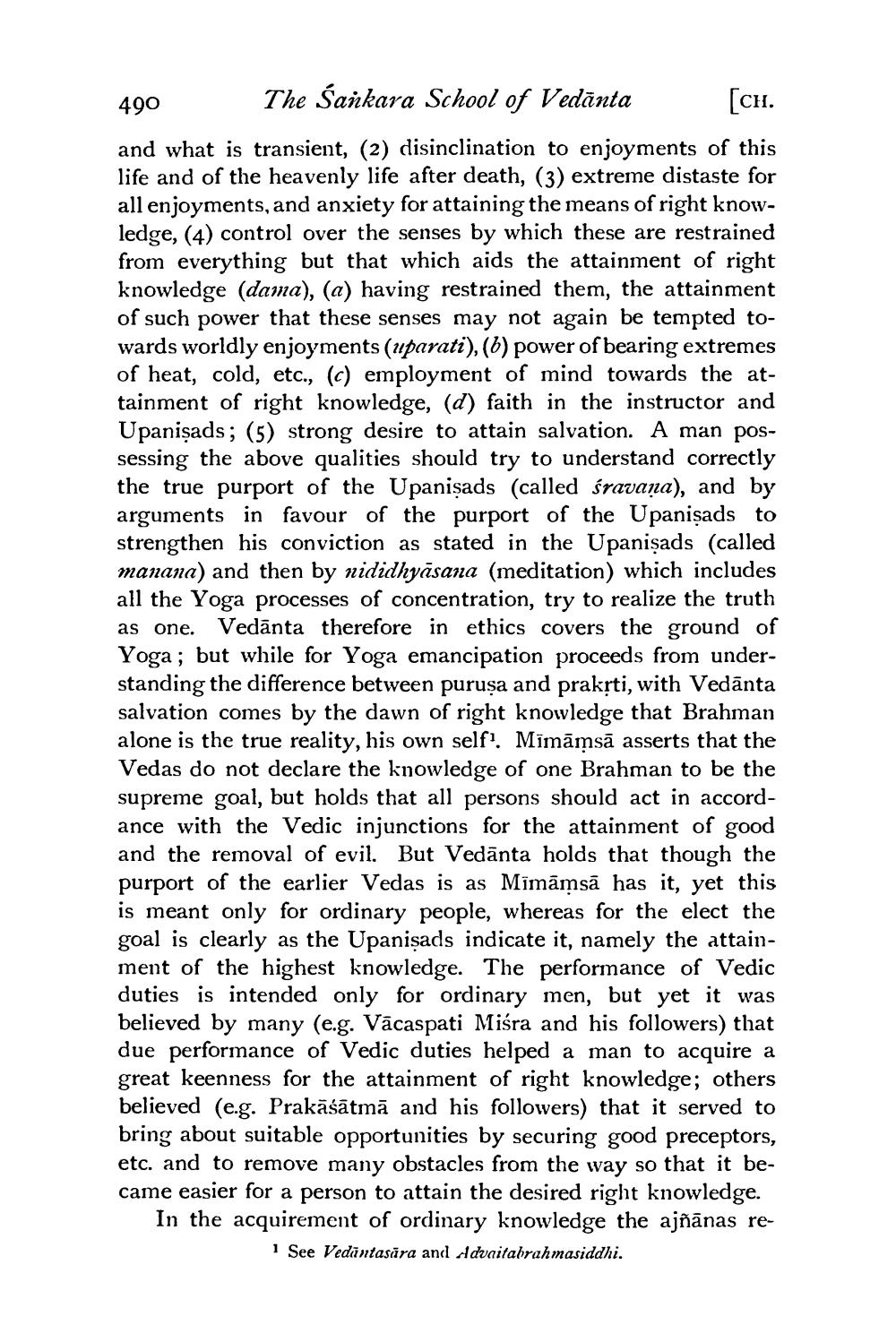________________
490
The Sankara School of Vedānta [CH. and what is transient, (2) disinclination to enjoyments of this life and of the heavenly life after death, (3) extreme distaste for all enjoyments, and anxiety for attaining the means of right knowledge, (4) control over the senses by which these are restrained from everything but that which aids the attainment of right knowledge (dama), (a) having restrained them, the attainment of such power that these senses may not again be tempted towards worldly enjoyments (uparati), (6) power of bearing extremes of heat, cold, etc., (c) employment of mind towards the attainment of right knowledge, (d) faith in the instructor and Upanişads; (5) strong desire to attain salvation. A man possessing the above qualities should try to understand correctly the true purport of the Upanişads (called stavana), and by arguments in favour of the purport of the Upanişads to strengthen his conviction as stated in the Upanisads (called manana) and then by nididhyāsana (meditation) which includes all the Yoga processes of concentration, try to realize the truth as one. Vedānta therefore in ethics covers the ground of Yoga; but while for Yoga emancipation proceeds from understanding the difference between purusa and prakrti, with Vedānta salvation comes by the dawn of right knowledge that Brahman alone is the true reality, his own self?. Mīmāmsā asserts that the Vedas do not declare the knowledge of one Brahman to be the supreme goal, but holds that all persons should act in accordance with the Vedic injunctions for the attainment of good and the removal of evil. But Vedānta holds that though the purport of the earlier Vedas is as Mīmāmsā has it, yet this is meant only for ordinary people, whereas for the elect the goal is clearly as the Upanişads indicate it, namely the attainment of the highest knowledge. The performance of Vedic duties is intended only for ordinary men, but yet it was believed by many (e.g. Vācaspati Misra and his followers) that due performance of Vedic duties helped a man to acquire a great keenness for the attainment of right knowledge; others believed (e.g. Prakāśātmā and his followers) that it served to bring about suitable opportunities by securing good preceptors, etc. and to remove many obstacles from the way so that it became easier for a person to attain the desired right knowledge. In the acquirement of ordinary knowledge the ajñānas re
See Vedantasära and Advaitabrahmasiddhi.




